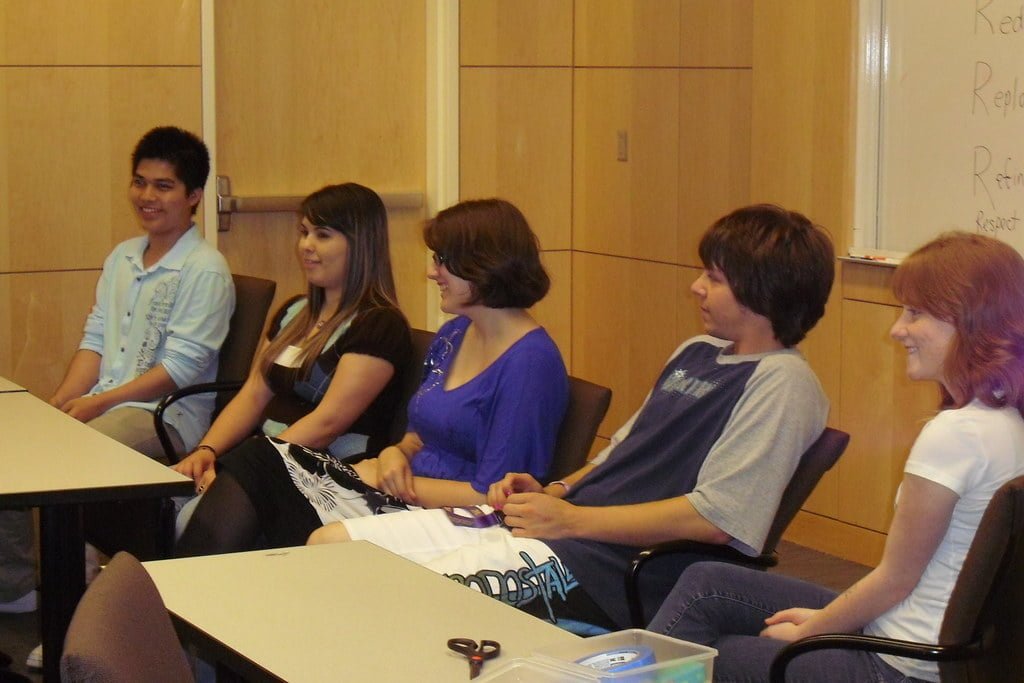Understanding the reasons for an F visa application denial and the steps to take afterward can be crucial in eventually obtaining the visa. When your F visa application is denied, don’t be discouraged – it’s essential to know your options and find the best course of action moving forward.
First, it’s important to analyze the denial letter and identify the specific reasons for the denial. Once you have a better understanding of the underlying issues, you can decide whether to reapply, appeal the decision, or consider alternative options, such as applying for a waiver or seeking assistance from an immigration attorney.
Key Takeaways
- Familiarize yourself with common reasons for F visa denials to better prepare
- Thoroughly analyze the denial letter to identify the specific issues and plan your next steps
- Consider reapplying, appealing the decision, or seeking a waiver based on the reasons for the denial

Understanding Visa Denials
Experiencing a visa denial can be frustrating and confusing. To navigate this situation successfully, it’s essential to understand the possible reasons for denial and the steps you can take to overcome them.
One of the key factors contributing to visa denials is the information provided during the interview with the consular officer at the U.S. embassy or consulate. If the officer doubts your intentions or believes you do not qualify for the visa category applied for, they may issue a denial.
Another cause could be a failure to provide sufficient documentation, which falls under §221 of the Immigration and Nationality Act (INA). Make sure to double-check that all the required documents are included in your application to avoid this pitfall.
In some cases, an applicant may be found inadmissible due to reasons specified in §212 of the INA. These grounds for inadmissibility can include ineligibility based on health, criminality, or national security concerns. In particular, convictions involving “moral turpitude” may render you inadmissible.
If you are aware of any ineligibility criteria that apply to you, preparing a waiver or obtaining legal advice may help alleviate these concerns. Additionally, make sure to research thoroughly and understand the eligibility requirements for the specific visa you’re applying for.
Overall, understanding the reasons for visa denials is crucial for addressing them and improving your chances of obtaining the desired visa. Stay prepared, well-informed, and be ready to provide accurate information during your interview to maximize your chances of visa approval.

Common Reasons for F Visa Application Denials
When your F visa application is denied, it can be due to various reasons. One common cause is incomplete documentation. Ensuring that all your documents are submitted, such as the I-20 form and the DS-160, is crucial for approval. Double-check your application to make sure you have not missed any necessary documentation.
Another prevalent reason for visa denials is the lack of financial support. You must provide proof that you have enough funds to cover your expenses during your stay in the U.S. This can include bank statements, scholarship letters, or a sponsor’s financial information.
Incorrect or incomplete forms can also lead to a denied F visa application. Always ensure that you are using the appropriate form for your specific immigration case. For example, the Form I-20 is required for F-1 visa applicants. Before submitting, double-check that you have completed all necessary forms without errors.
Missing documents can have a significant impact on your application’s outcome. It is essential to review and submit all required documents accurately and in a timely manner. Ensure that you include documents such as your passport, academic transcripts, test scores, and any other relevant documentation.
In some cases, visa denials may result from inconsistencies in the information provided during the application process. It is crucial to be honest and provide accurate information at every stage of the process. Any discrepancies can lead to a denial, so make sure your application is consistent with any interviews or previous applications.
While navigating the F visa application process, it is crucial to be aware of these common reasons for denials so that you can avoid them. Thoroughly review all the requirements and documents to give yourself the best chance of approval. Remember, staying organized and providing accurate information will help you successfully obtain your F visa.

Analyzing the Denial Letter
When you receive your F-1 visa denial letter, it is crucial to carefully examine the reasons provided for the rejection. Understanding why your application was denied by the consular officer will help you address the issues and prepare for a future application or inquiry. Make sure to review the information in the letter and take note of the specific reasons to better formulate a course of action.
Keep in mind that a denial letter issued by a consulate or embassy will contain important details regarding your application. While you may feel frustrated or disheartened, it is important to stay calm and focused as you evaluate your next steps. Consult with others who have experience with the visa application process, such as advisors or mentors, to gain insight and advice.
In some cases, the denial may be due to missing or incomplete documentation. It is essential to navigate USCIS requirements and ensure that your application materials are complete and up-to-date. Double-check your application and gather any missing documents before you consider reapplying or requesting a review.
If your denial is based on more subjective grounds, such as concerns about your intent to return to your home country after completing your studies in the United States, it is important to be clear and convincing in addressing these issues. You may need to provide additional supporting information or clearly articulate your long-term plans in written or verbal communication with the consular officer.
Time is also a factor in decision-making. Ensure you give yourself enough time to adequately address the issues raised in your denial letter before your intended study start date. Reapplying hastily without thoroughly addressing the concerns can lead to repeat denials, which might negatively impact your chances of obtaining a visa in the future. So, take your time, gather any new or required information, and prepare diligently for your next application or interaction with the consulate or embassy.

Appealing and Waivers
If your visa application is denied, it’s essential to understand the appeal process and the possibility of obtaining a waiver. Facing visa denial can be frustrating and disheartening, but knowing your options can help secure your immigration status in the United States.
In some cases, you may be eligible for an appeal. This typically involves submitting additional documentation or clarification to address the reason for the denial. When preparing for the appeal process, ensure you thoroughly review the denial notice and gather the required information. While appealing a decision can be time-consuming, it might be the best course of action for securing your immigration status.
A waiver of ineligibility or a waiver of the grounds of inadmissibility may also be available. These waivers can be granted on a discretionary basis and help overcome specific issues that led to your visa denial. For instance, if you were found inadmissible due to a previous criminal conviction, a waiver of ineligibility could help you obtain a visa.
When seeking a waiver, it’s important to provide strong supporting evidence demonstrating your eligibility for the waiver. This might include demonstrating that refusal of your visa would cause extreme hardship to a U.S. citizen or lawful permanent resident family member. Consulting with an experienced immigration attorney can improve your chances of success in obtaining a waiver and ultimately securing your U.S. immigration status1.
Overall, while facing a visa denial can be a challenging experience, understanding the appeal process and the possibility of obtaining waivers can help improve your chances of success. By carefully considering these options and seeking professional guidance, you can confidently navigate the complex world of U.S. immigration and work towards securing your immigration status.
Footnotes
Reapplying for the F Visa
If your F visa application is denied, don’t be discouraged, as you have the option to reapply. To increase your chances of getting approved, closely review the reasons for the initial denial, and address those issues in your new application.
First, gather the necessary documents and ensure they are accurate and complete. Double-check your application form, and make sure it is filled out correctly. Double-check your supporting documents, such as your financial statements and academic records, to ensure they meet the requirements of the F visa. Keep in mind that the Visa fee might apply again, so be prepared to cover it during the reapplication process.
Schedule another appointment at the U.S. embassy or consulate in your home country. It is important to be well-prepared for the interview, presenting a clear and valid reason for your desire to study in the United States. Demonstrating confidence in your goals and explaining your commitment to return to your home country after completing your studies can help make your case stronger.
It’s essential to give yourself enough time to reapply for the F visa, as the process can be time-consuming, and you don’t want to risk missing the start of your academic program. Furthermore, it might be helpful to consult with experts or review tips for successfully applying for a visa to learn from others’ experiences and ensure you are submitting the strongest possible application.
By addressing the reasons for your initial visa denial and following the proper procedures, you can improve your chances of getting your F visa application approved and pursuing your academic goals in the United States.

Photo by javier trueba
Overcoming 214(b) and 221(g) Ineligibility
If your F visa application is denied under INA Section 214(b) or INA Section 221(g), it can feel discouraging. However, there are steps you can take to potentially overcome these ineligibilities.
When dealing with a 214(b) denial, the main issue relates to your presumed immigrant intent. The consular officer must be convinced that you have strong ties to your home country and that you’ll return after your studies. To address this, gather additional evidence of your ties to your home country such as employment, family connections, or financial commitments. Prepare for your next interview by rehearsing your answers and demonstrating your intent to leave the United States after completing your studies.
For a 221(g) denial, the consular officer may require additional information to determine your eligibility for a visa. In this case, they will provide you with a written explanation of the specific documents or information needed. Be proactive in gathering and submitting the required documents. Once you have provided the necessary information, the embassy may reconsider your visa application.
If you remain ineligible for a visa after addressing the issues, consider reaching out to a reputable immigration attorney. They can assist you in understanding your options and navigating the complex immigration process.
Remember to always be truthful, keep your materials organized, and maintain a confident and clear communication style during interviews with consular officers. With perseverance and thorough preparation, you may have a better chance of overcoming your visa denial and starting your journey in the United States.
Frequently Asked Questions
Can I reapply after an F1 visa denial?
Yes, you can reapply after an F1 visa denial. However, it is essential to identify the reason for the initial rejection and address it before submitting a new application.
What are common reasons for F1 visa rejection?
Some common reasons for F1 visa rejection include insufficient financial support, lack of a strong connection to your home country, and miscommunication during the visa interview. Make sure to provide clear and accurate information during your application process.
How long should I wait to reapply for an F1 visa?
There is no fixed waiting period to reapply for an F1 visa. However, it is recommended to wait until you have gathered all the necessary documents and addressed the issues that led to the initial denial. This will help improve your chances of approval during the reapplication process.
How can I overcome a 214(b) visa rejection?
To overcome a 214(b) visa rejection, you need to prove strong ties to your home country and demonstrate that you are a legitimate, non-immigrant student. You can do this by providing evidence of family and social connections, financial stability, and future plans that show your intention to return to your home country after completing your studies.
How will I be informed about my visa rejection?
If your visa application is rejected, the consular officer will inform you at the end of the interview. They might also provide a written document explaining the reason for the denial and any available options for reconsideration or waiver of inadmissibility.
What steps can I take to increase chances of visa approval after denial?
To increase your chances of visa approval after denial, thoroughly review the reasons for denial, gather all relevant documents, and prepare well for the next visa interview. This includes providing scholarship letters, admission letters, financial documentation, and letters of recommendation. The more information you can provide, the better your chances of avoiding a second visa denial.




